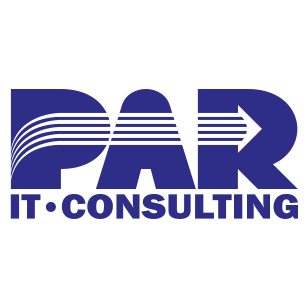Grandma Interacts During GeckoSystems' Elder Care Robot Trials
- clintmobley6
- Dec 2, 2009
- 4 min read
CONYERS, Ga., Dec. 2, 2009 -- GeckoSystems Intl. Corp. (PINKSHEETS: GCKO) announced today that during their second week of real world evaluation trials for their fully autonomous personal companion home care robot, the CareBot™, they have learned some surprising and some, not surprising, insights. GeckoSystems is a dynamic leader in the emerging Mobile Service Robot (MSR) industry revolutionizing their development and usage with "Mobile Robot Solutions for Safety, Security and Service™."
"Practical, cost effective mobile robot solutions are our primary goal. We are very pleased to continue our in home trials of this new assistive care home appliance, the CareBot. It is a customizable personal companion robot with telepresence capabilities. During this second week we have confirmed some important care giving benefits for the elderly. Our long held belief is that personal companion mobile robots, like the CareBot, can help tens of thousands of families take better care of their loved ones while saving significant monies," remarked Martin Spencer, President/CEO, GeckoSystems.
"My widower mother will be ninety-four next April. She had detached retina surgery some years ago and as an unfortunate side effect her short-term memory was reduced to only two to three minutes. So while she has many of the Alzheimer victim issues, her short-term memory has not continued to degrade as is common. Nonetheless, because of her short-term memory loss, she asks the same question(s) twenty, thirty times a day. Answering the same question over and over is a real stressor. Since she worries most about someone coming over unexpectedly and her not being prepared, she asks, 'Is anyone coming over today?' over and over and over". So we have programmed GeckoChat™ to respond with 'No visitors today' in such a manner that she understood what was being said. Over the Thanksgiving holiday, she responded, with glee, 'why can't I have some visitors?' to the CareBot's verbal reminder. I am pleased with the performance of the CareBot and my mother's reaction to it. She is not scared by the robot, in other words. In fact, she tends to be amused," remarked the baby boomer caregiver.
"We have worked for some years to develop the ability for our CareBot MSR's to intelligently listen and respond to spoken commands of the caregiver and/or care receiver as we have learned in our extensive market research (focus group) work. GeckoChat can be readily customized for words, phrases and sentences to be recognized by the care receiver and appropriate, desirable responses by the family," observed Spencer.
While personal robots cannot reliably sense and respond to human emotions, due to the many different means available to the end user, CareBot persona can be easily customized as to voice tonality, cadence, pitch, breathiness, volume, choice of words, etc. Further, the words and/or phrases chosen in response to anticipated questions to the CareBot can be colloquial in the word choice and approximate the native dialect using various user settings in the software and/or hardware. With the foregoing capabilities there is now a new type of surrogate companion, not only for the elderly, but also other family members such as children and/or the chronically ill.
"GeckoChat continues the suite of our fundamental GeckoSavants™ with the disparate, functional benefits needed to cost effectively provide utility to families for remote care taking of their members and other loved ones by making them more personal and uniquely adapted and addressed to the particular person to be assisted. Not only does this capability enable new forms of social interaction and community for families --even when dispersed geographically--, it will also increase ROI for our investors," remarked Spencer.
Like an automobile, mobile robots are made from steel, aluminum, plastic, and electronics, but with ten to twenty times the amount of software running. The CareBot has an aluminum frame, plastic shroud, two independently driven wheels, multiple sensor systems, microprocessors and several onboard computers connected in a local area network (LAN). The microprocessors directly interact with the sensor systems and transmit data to the onboard computers. The onboard computers each run independent, highly specialized cooperative/subsumptive artificial intelligence (AI) software programs, GeckoSavants™, which interact to complete tasks in a timely, intelligent and common sense manner. GeckoNav™, GeckoChat™ and GeckoTrak™ are primary GeckoSavants. GeckoNav is responsible for maneuvering, avoiding dynamic and/or static obstacles, seeking waypoints and patrolling. GeckoChat is responsible for interaction with the care-receiver such as answering questions, assisting with daily routines and reminders, and responding to other verbal commands. GeckoTrak, which is mostly transparent to the user, enables the CareBot to maintain proximity to the care-receiver using sensor fusion. The CareBot is an internet appliance that is accessible for remote video/audio monitoring and telepresence.
"We continue to look forward to further exploration and understanding of family, CareBot, and care receiver social interaction in the coming weeks and months of these in home assistive care robot trials. With these world's first home trials progressing nicely with no unforeseen problems, we have already learned a great deal as to the reality of beneficial social interaction between human and robot in domestic settings. There seems to be a very important positive impact of valued extended family behaviors using a CareBot to communicate their thoughts and feelings to their neediest family members," concluded Spencer.

Comments